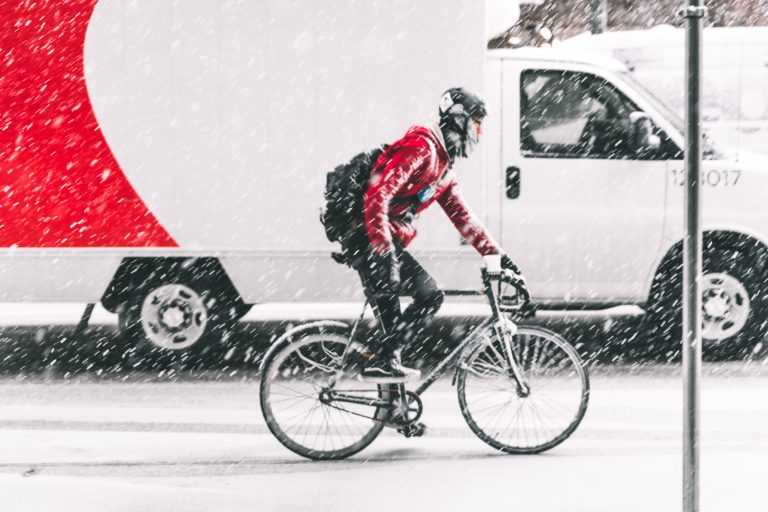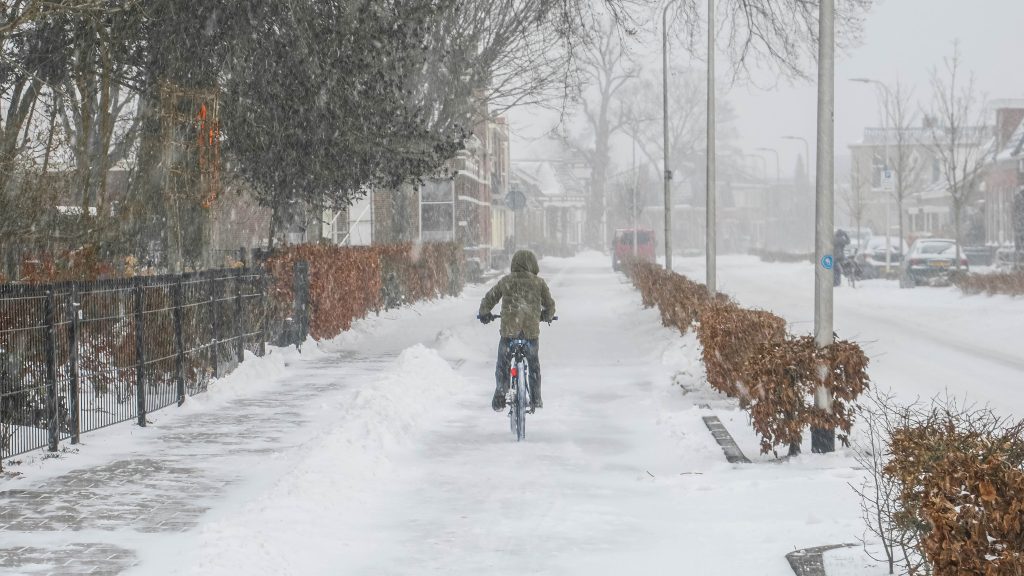
Fifth edition of the January Challenge Bike (Walk or Trot) to work encourages to sustainable transport at the beginning of the year

A healthy lifestyle, a clear head, but also respect for the environment. These are just some of the motivations why more and more people are embracing sustainable transport. And we are encouraging them to move around the city regularly on their power, even in winter, for the fifth time this year and are launching the January 2023 Bike (Walk or Trot) to Work Challenge in the week of 23-29 January. It draws attention not only to the fact that non-motorized transport is not just a seasonal issue, but also a climate change issue. Registration for the challenge is open now.
The principle of the January Bike to Work Challenge is simple. It all starts with free registration. In January, participants then cycle to work for a whole week without an engine, record their journeys in the system, and win exciting prizes. Only the “regularity of the individual” is evaluated, yet participants can also track their covered kilometers on a leaderboard. After all, the regularity of sustainable journeys, regardless of record-breaking performance, is crucial for the whole challenge, but most importantly for the health of ourselves, our cities, and the planet.
Cities are for everyone
“Riding a bicycle or scooter, walking or running are not just sports disciplines. They are regular ways of getting around the city and should be kept in mind all year round,” explains Dominika Lenthárová, coordinator of the AutoMat Bike to Work Challenge. The January challenge is also another way to draw attention to the unbearable, yet sometimes untouchable, individual car traffic in our cities. “A sustainable city is one that gives a balanced space to all modes of transport and takes into account all its participants – not just the motorist’s point of view,” adds Dominika Lenthárová.
Winter doesn’t have to stop us
The organizing association AutoMat has been promoting year-round active transport for a long time and systematically. “In AutoMat, for example, we provide practical instructions on how to cycle in winter and also appeal for winter maintenance of cycling infrastructure. We have been involved in this ourselves – by constructing a cycleplough and regularly pulling through Prague´s cycle paths. Winter is no reason to give up active transport. We can take inspiration from Finland or Denmark, especially with their emphasis on building safe infrastructure. Then all we need is the right clothing and equipment. And when it is icy, there is always walking, and its combination with public transport,” adds Anna Kociánová.

If you can’t bike, there’s always walking
In the previous January challenge Bike to Work 2022, 1,854 people from all over the Czech Republic took part, logging a total of 31,300 km by bike and 9,700 km on foot. In total, they recorded 3,300 trips by bicycle and 2,744 trips on foot in the system, which works out to an average of 9.5 km per bicycle trip and 3.5 km per “walking trip”. In total, therefore, a theoretical saving of 5.3 tonnes of CO2 was achieved (compared to the same distance traveled by car).
Infrastructure first
Anonymizovaná data o skutečných trasách vykonaných pěšky nebo na kole využívá AutoMat při jednání s městy o rozvoji bezpečnější infrastruktury. Každé město, které se organizačně zapojí do Květnové výzvy Do práce na kole, může získat cenná data pro rozvoj své stávající infrastruktury a plánování té budoucí. „Mezi nejčastější důvody, proč lidé nejezdí po městě na kole, patří strach z pohybu mezi motorovými vozidly. Zkušenosti ze zahraničí svědčí o tom, že kvalitní a bezpečná infrastruktura pro pěší a cyklisty je pro změnu dopravního chování mnohem zásadnější než třeba počasí nebo podnebí,“ říká Dominika Lenthárová.
Climate as a serious reason
But cycling and walking are also means of combating the excessive production of carbon dioxide, which is contributing to increasingly severe climate change. Transport accounts for 25-30% of the EU’s total greenhouse gas production, with motorized transport accounting for around 50% of this amount. Interestingly, CO2 emissions in all major sectors (energy, industry, housing, forestry) are falling, except for one: transport.

Every kilometre you cover without an engine counts
When spring asks…
Preparations for the 13th edition of the May Bike to Work Challenge, which is a challenge for (not only corporate) teams but also a popular teambuilding event, are already in full swing. It is already possible to purchase the most advantageous entry fee, which will also include a competition T-shirt designed by typographer Jan Charvát. If you would like to purchase the entry fee for your employees, for example as a gift, please contact firmy@dopracenakole.cz.

The theme of this year’s May Challenge is the Path to Balance

I wanted the motif to evoke playfulness, says the author of the visual for this year’s May Challenge
